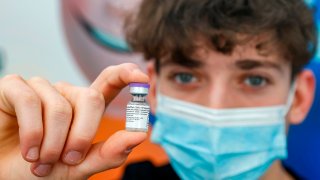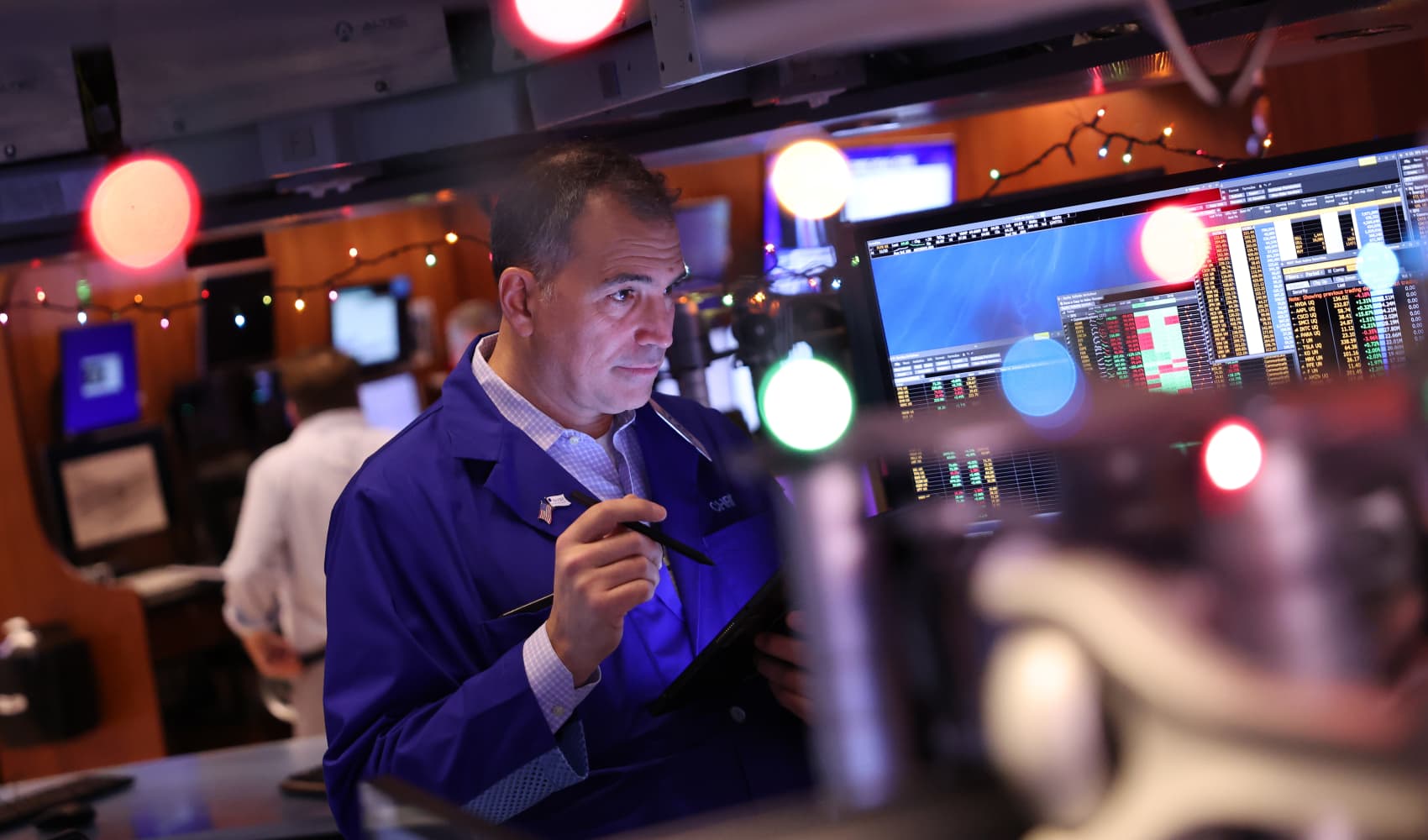
- The CDC's endorsement came just hours after the Food and Drug Administration on Thursday expanded eligibility for Pfizer and BioNTech's Covid vaccine booster shot to 16- and 17-year-olds.
- Regulators in the U.S. have been slower to approve vaccines for younger people than for older adults due to concerns about myocarditis, a rare inflammatory heart condition that's most prevalent in young men.
- The FDA on Thursday said that after evaluating more real-world data it determined the benefits of the shots outweighed the risks of myocarditis.
The Centers for Disease Control and Prevention on Thursday strongly encouraged older teenagers to get a Pfizer vaccine booster shot at least six months after completing their first two Covid-19 doses.
WATCH ANYTIME FOR FREE
Stream NBC10 Boston news for free, 24/7, wherever you are. |
The CDC's recommendation for 16- and 17-year-olds comes just hours after the Food and Drug Administration expanded eligibility for Pfizer and BioNTech's third shot to that age group.
"Although we don't have all the answers on the Omicron variant, initial data suggests that COVID-19 boosters help broaden and strengthen the protection against Omicron and other variants," CDC Director Dr. Rochelle Walensky said in a statement. "We know that COVID-19 vaccines are safe and effective, and I strongly encourage adolescents ages 16 and 17 to get their booster if they are at least 6 months post their initial Pfizer vaccination series."
Get updates on what's happening in Boston to your inbox. Sign up for our News Headlines newsletter.
Walensky's OK will allow many high school students to immediately get their third shot.
The CDC's strong recommendation and the FDA's emergency authorization come only a day after Pfizer and BioNTech released initial lab data indicating that booster shots provide high levels of protection against the highly mutated omicron variant of the virus that causes Covid-19.
The preliminary data found that omicron significantly reduces the protection provided by the initial two-dose series. Boosters, on the other hand, fight the variant at levels comparable to the 95% protection provided by the two-dose series against the original strain of the virus, the lab results showed.
Money Report
"As people gather indoors with family and friends for the holidays, we can't let up on all the preventive public health measures that we have been taking during the pandemic," acting FDA Commissioner Dr. Janet Woodcock said in a press release. "With both the delta and omicron variants continuing to spread, vaccination remains the best protection against COVID-19."
Regulators in the U.S. have been more hesitant to approve vaccines for younger people than for older adults due to concerns about myocarditis, a rare inflammatory heart condition that's been found most prevalent in young men and thought to be related to testosterone levels.
The FDA on Thursday said that after evaluating more real-world data it determined that the benefits of the shots outweighed the risks of myocarditis.
The most common symptoms reported by people who have received boosters are pain, redness and swelling at the injection site as well as fatigue, muscle and joint pain and chills, according to the FDA.
Public health authorities in the U.S. are calling for everyone who is eligible to get a booster shot, amid fears of a winter Covid surge driven by the delta variant and uncertainty about the future course of the pandemic due to omicron.
The efficacy of the initial two-dose vaccination series was declining before the arrival of omicron. The journal Science published a study last month that found the effectiveness of Pfizer's two-dose vaccine declined to 43% from 86% between February and October.
The vice president of Pfizer's vaccine clinical research program, Dr. John Perez, told a CDC advisory committee last month that the booster was 95% effective at preventing symptomatic infection in a clinical trial of 10,000 participants 16 years and older.






